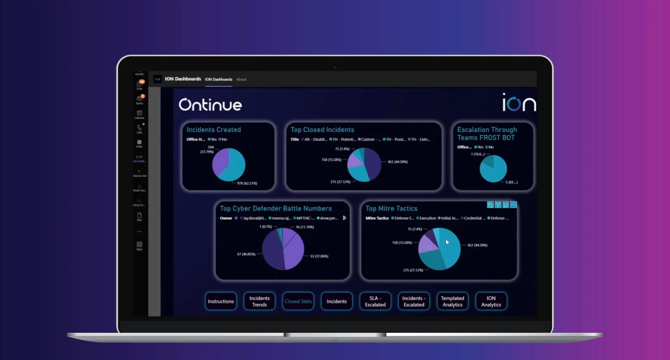Cyber Security News
Tech Radar
138

Image Credit: Tech Radar
Chinese hackers launch major cyberattack campaign against businesses across the world
- Chinese hackers have been targeting companies across the world for approximately a year, compromising at least 75 organizations, with potential for more victims.
- The cyberattacks were attributed to three China-linked threat actor collectives: APT15, UNC5174, and APT41, targeting a variety of sectors including government, IT services, and media organizations.
- SentinelLABS concluded that the attackers may be positioning for potential conflict, either cyber-related or military, based on the targeted critical infrastructure organizations.
- The cyberespionage campaign targeted organizations in manufacturing, government, finance, telecommunications, and research sectors, suggesting motives for direct espionage or disruption in case of conflicts.
Read Full Article
8 Likes
The Register
62

Image Credit: The Register
Winning the war on ransomware with AI: Four real-world use cases
- AI is becoming a crucial tool in the fight against ransomware, with 90% of IT security teams already using AI for this purpose.
- Organizations are leveraging AI in various ways, such as enhancing SOC efficiency, detecting IOCs at scale, stopping phishing attacks, and improving identity security through IAM and PAM.
- AI helps security operations centers prioritize and respond to incidents more efficiently, detect indicators of compromise faster, prevent phishing attacks, and enhance identity and access management.
- By utilizing AI technologies, cybersecurity teams are gaining an edge over ransomware attackers and staying ahead in the battle against evolving cyber threats.
Read Full Article
3 Likes
Sdtimes
22

Image Credit: Sdtimes
Azul significantly cuts down on false positives in Java vulnerability detection with latest update to Azul Intelligence Cloud
- Azul has updated its Vulnerability Detection solution to reduce false positives in Java vulnerability detection by up to 99%.
- The update aims to flag vulnerabilities in code paths that are actively used in Java applications, preventing unnecessary alerts.
- By curating a knowledge base mapping CVEs to runtime-used classes, Azul ensures accurate identification of vulnerable components in applications.
- This approach helps in distinguishing between potentially vulnerable components in use and parts that are not activated, thereby minimizing wasted efforts on non-critical vulnerabilities.
Read Full Article
1 Like
Mcafee
441

Image Credit: Mcafee
How To Protect Your Family’s Smartphones While on Vacation
- Smartphones are essential for vacations but are also susceptible to theft and damage, making precautions vital.
- Tips include investing in protective gear, backing up data, enabling tracking features, and using VPN on public Wi-Fi.
- Establish phone usage guidelines, designate secure storage, be cautious with device display, and consider insurance coverage.
- Physical protection involves using cases, screen protectors, secure storage, and being mindful of surroundings.
- Protect data with password protection, software updates, and regular backups to prevent information loss.
- Manage roaming charges by checking with mobile providers and utilizing Wi-Fi or local SIM cards instead.
- Helpful apps like antivirus, password managers, VPNs, and data monitoring tools can enhance device security.
- Preparation, understanding insurance coverage, and proactive security measures are key to enjoying a worry-free vacation with smartphones.
- Engaging with children about their online activities and being part of their digital lives can enhance family safety and peace of mind.
- Enjoy travels responsibly and stay informed to ensure a secure and enjoyable vacation experience.
Read Full Article
26 Likes
Securityaffairs
379

Image Credit: Securityaffairs
U.S. CISA adds RoundCube Webmail and Erlang Erlang/OTP SSH server flaws to its Known Exploited Vulnerabilities catalog
- U.S. CISA adds RoundCube Webmail and Erlang Erlang/OTP SSH server flaws to its Known Exploited Vulnerabilities catalog.
- CVE-2025-32433 is a critical flaw impacting older versions of Erlang/OTP SSH server, leading to remote code execution.
- CVE-2024-42009 is a critical XSS vulnerability in RoundCube Webmail software, allowing malicious email-based attacks.
- CISA has ordered federal agencies to fix these vulnerabilities by June 30, 2025, to protect against potential exploitation.
Read Full Article
22 Likes
Tech Radar
267

Image Credit: Tech Radar
Key Whole Foods supplier hit by major cyberattack - delays possibly on the way
- United Natural Foods, a major supplier to Whole Foods, confirmed a cyberattack that forced parts of its IT infrastructure offline.
- The incident caused temporary disruptions in business operations, and the company is working with cybersecurity experts to assess and mitigate the damage.
- No threat actors have claimed responsibility yet, and the investigation is ongoing to determine the impact and scope of the attack.
- Headquartered in Providence, Rhode Island, United Natural Foods supplies over 30,000 retail locations in the US and Canada.
Read Full Article
16 Likes
TechCrunch
285

Image Credit: TechCrunch
Ongoing cyberattack at US grocery distributor giant UNFI affecting customer orders
- United Natural Foods (UNFI) is working to restore its capabilities after a cyberattack last week disrupted the grocery supply chain.
- The company has shut down its entire network following unauthorized access to its IT systems, causing ongoing disruptions to operations and customer orders.
- Customers are experiencing limited deliveries, with reports of empty shelves in some stores; however, the full impact may not be visible immediately.
- UNFI has not disclosed the nature of the cyberattack or the extent of its cybersecurity spending, and external-facing systems like web systems and VPN products are offline.
Read Full Article
17 Likes
VentureBeat
0

Image Credit: VentureBeat
Vanta’s AI agent wants to run your compliance program — and it just might
- Vanta, the San Francisco-based compliance automation startup, has launched an autonomous AI agent designed to handle security and compliance workflows independently.
- The Vanta AI Agent, currently in private beta with a general availability target set for July, marks a shift towards AI acting as a trusted partner in compliance programs.
- It proactively identifies compliance issues, suggests fixes, and undertakes actions on behalf of security teams while ensuring human oversight for final decisions.
- The timing of the launch aligns with heightened security risks and increased time spent on compliance tasks, as per Vanta’s State of Trust report.
- The AI Agent streamlines policy onboarding, automates control mapping, monitors policy-practice inconsistencies, and serves as an intelligent knowledge base for policy queries.
- Early feedback indicates substantial productivity gains, with users reporting time savings and improved accuracy in compliance tasks.
- The Agent's evidence verification capabilities help streamline audit processes, ensuring completeness and accuracy of uploaded documents against audit requirements.
- Vanta's AI Agent launch comes amid the fast-growing compliance automation market, with the company securing significant funding and expanding its customer base globally.
- The solution, designed for human empowerment rather than replacement, integrates complete context about a company's compliance history and risk posture for personalized recommendations.
- Despite its autonomous features, human oversight remains crucial, with the Agent guiding teams through workflows and recommending actions while keeping humans in control of final decisions.
Read Full Article
Like
Nvidia
294

Image Credit: Nvidia
Cisco and NVIDIA Advance Security for Enterprise AI Factories
- Cisco and NVIDIA announced AI Defense and Hypershield security solutions at the Cisco Live conference in San Diego to provide comprehensive visibility and protection across AI workflows.
- The integration of Cisco AI Defense and Hypershield with NVIDIA AI aims to deliver high-performance, scalable, and trustworthy AI responses for various AI workloads.
- Cisco Hypershield will work with NVIDIA BlueField DPUs and DOCA Argus framework to enhance security and real-time threat detection across AI infrastructure, ensuring zero-trust security.
- Cisco is expanding its AI PODs and offering the new NVIDIA RTX PRO 6000 Blackwell Server GPU with Cisco UCS C845A M8 servers to support flexible and scalable AI initiatives for enterprises.
Read Full Article
17 Likes
Siliconangle
334

Image Credit: Siliconangle
Ontinue brings agentic AI to Microsoft-focused MXDR investigations
- Ontinue AG, a Swiss artificial intelligence-powered managed extended detection and response company, has introduced autonomous incident investigations in its ION MXDR platform, powered by agentic AI.
- The new capability automates Tier 2-level investigations, providing deeper contextual understanding and faster response to security incidents, reducing the burden on security operations teams.
- Ontinue's Agentic AI automates escalated alerts, conducts contextual investigations, and provides structured summaries with recommended actions, resulting in up to 50% reduction in incident investigation time and resolving 99.5% of incidents without human intervention.
- The autonomous capabilities of agentic AI aim to address scale limitations in managed detection and response, combining human expertise with intelligent automation to tackle complex cyber threats efficiently.
Read Full Article
20 Likes
Wired
89

Image Credit: Wired
Airlines Don’t Want You to Know They Sold Your Flight Data to DHS
- A data broker owned by major airlines like Delta, American Airlines, and United, sold US travelers' domestic flight records to Customs and Border Protection (CBP).
- CBP purchased this data to track air travel of people of interest, using it for state and local police support, raising concerns among civil liberties experts.
- The data broker, Airlines Reporting Corporation (ARC), instructed agencies not to disclose the data source, involving passenger names, flight itineraries, and financial details.
- Senator Ron Wyden criticized the sale of sensitive data, highlighting the secrecy behind airlines' involvement in providing access to Americans' information.
- ARC, owned by major US airlines, facilitates ticket settlement services for over 240 airlines, with the sale of travel information part of its Travel Intelligence Program (TIP).
- ARC's TIP product assists federal, state, and local law enforcement to identify individuals' domestic air travel information, crucial for administrative and criminal cases.
- Privacy Impact Assessment (PIA) shows that TIP data includes one billion records over 39 months, accessed daily, impacting both US and non-US persons, including US citizens.
- CBP's contract with ARC, starting in 2024 and extending to 2029, involves a significant transaction for accessing travelers' data, with additional payments for contract extensions.
- US law enforcement agencies, including CBP and ICE, rely on data brokers like ARC to obtain information without warrants or legal processes, raising concerns about privacy infringements.
- This practice highlights the growing reliance on data brokers by the government, indicating the need for congressional intervention to address the circumvention of surveillance reform legislation.
Read Full Article
5 Likes
Managedmethods
312

Image Credit: Managedmethods
Why Traditional Email Filters Aren’t Enough to Stop Phishing in K–12
- Phishing poses a significant cybersecurity threat to K-12 schools, with attacks becoming increasingly sophisticated and targeted.
- Traditional email filters provided by Google Workspace and Microsoft 365 are inadequate in detecting advanced phishing tactics that rely on social engineering.
- These filters lack the ability to assess the intent of emails, leading to potential impersonation attacks that evade detection.
- AI and machine learning tools are essential in proactively defending against phishing attempts by analyzing contextual cues and behavioral patterns in emails.
- Advanced phishing detection tools powered by AI can identify anomalies and suspicious requests that traditional filters may overlook.
- These modern tools also offer automated response capabilities, saving time for IT teams in responding to phishing threats.
- ManagedMethods provides Advanced Phishing Detection as a solution tailored for K-12 schools, offering AI-driven protection without exceeding budget constraints.
- Investing in AI-powered phishing detection tools can help K-12 schools stay ahead of evolving cyber threats and enhance overall cybersecurity measures.
- By leveraging AI reasoning models, organizations can analyze email content more comprehensively and accurately identify potential phishing threats.
- The use of reasoning AI enables systems to ask critical questions about the legitimacy of emails and detect manipulative or abnormal communication patterns.
Read Full Article
18 Likes
Siliconangle
147

Image Credit: Siliconangle
Digital.ai launches Quick Protect Agent for rapid no-code mobile app security
- Digital.ai Software Inc. has launched Quick Protect Agent, a new agent that offers rapid, no-code mobile application protection as a part of its Application Security suite.
- Quick Protect Agent provides enterprise-grade protection without the need for coding, aligning with OWASP MASVS standards and offering features like obfuscation, anti-tamper, and anti-analysis.
- The tool aims to help organizations protect their apps against the increasing threat of reverse-engineering, analyzing, and exploiting applications facilitated by easily accessible AI tools.
- It allows for easy implementation of robust app security through a user-friendly interface, suitable for both iOS and Android apps.
Read Full Article
8 Likes
Socprime
17

Image Credit: Socprime
How AI Can Be Used in Threat Detection
- AI plays a crucial role in modern cybersecurity, aiding in faster threat detection and response through automated analysis and adaptive capabilities.
- Gartner highlights the impact of Generative AI (GenAI) in cybersecurity trends, offering flexible defense strategies for organizations.
- AI assistants are increasingly utilized for incident response, risk assessment, and code review, enhancing efficiency and reducing response times.
- AI-driven threat detection complements traditional defenses by leveraging Machine Learning, pattern recognition, and behavioral analysis for improved cybersecurity posture.
- AI models excel in behavioral analysis, anomaly detection, and anticipating intrusions, providing security teams with a competitive edge.
- Threat detection has evolved from rule-based systems to AI-powered solutions, with the latter offering real-time analysis and adaptability to emerging threats.
- AI-powered threat detection faces challenges such as data poisoning, model inversion attacks, and lack of explainability, necessitating tailored security strategies.
- Key AI concepts in threat detection include anomaly detection, behavioral analysis, machine learning models, threat intelligence integration, NLP, automated response, and continuous learning.
- Effective threat detection strategies involve integrating threat intelligence, operationalizing AI for behavioral detection, adopting zero-trust architecture, and prioritizing user training.
- AI applications in threat detection encompass threat intelligence enrichment, SIEM alert triage, AI-assisted threat hunting, network security monitoring, endpoint threat detection, and fraud detection.
- Ethical AI practices focusing on data transparency, fairness, and bias mitigation are crucial for AI-driven threat detection to address challenges effectively.
Read Full Article
1 Like
Siliconangle
224

Image Credit: Siliconangle
Swimlane raises $45M to expand AI-powered security automation platform
- Swimlane, a low-code security automation company, has raised $45 million in new growth funding for product innovation and global expansion.
- Founded in 2015, Swimlane offers AI-powered, low-code security automation through its platform, Turbine, which includes Hero AI for security operations.
- Turbine features a visual, low-code interface for designing automation playbooks, enabling faster workflow deployment than traditional security tools.
- Swimlane has seen significant growth, expanded customer base, and raised a total of $204 million to date, with Energy Impact Partners and Activate Capital leading the latest funding round.
Read Full Article
13 Likes
For uninterrupted reading, download the app